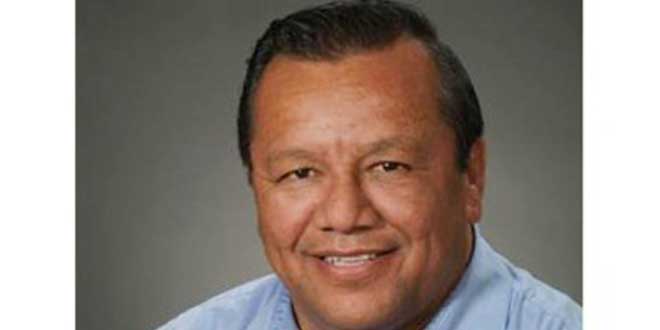M’CHIGEENG—The federal government needs to look at fixing the problems related to the Senate and the numerous reports of scandals involving several senators this year before it look’s at third party management of some financially troubled First Nations in Canada, says the deputy grand chief of the Union of Ontario Indians.
“The government needs to check the Senate before they run roughshod over any First Nation community,” stated Deputy Chief Glen Hare, last week. “The government needs to fix their own back yard before looking into others.”
“The Senate is supposed to be setting an example for all Canadians, but we have seen all the scandals over the past year—the government should be fixing its backyard first before looking at our communities,” said Chief Hare.
The Canadian Press reported on December 19, 2013 that the federal government wants to be able to tap into a pool of pre-qualified candidates who can manage the affairs of financially troubled First Nation communities. This comes despite past criticisms of the concept by the federal auditor general, the government’s own internal evaluation and First Nations themselves, about the hiring of third party outsiders to handle finances of struggling bands.
CP reports a recent request for proposals says a list will be created of pre-qualified people or companies, grouped by language and location, who may be called in to provide this third-party management of First Nations.
The document reads, “services solicited under this request for proposals are for third-party funding agreement management, where a third party funding agreement manager is appointed by Canada to administer the funding otherwise payable to the First Nation/aboriginal community and preferably also to assist the recipient in developing its capacity for management of the funding agreement.”
The Aboriginal Affairs Department website indicated that 14 First Nations were under third-party management as of November 1, down from 23 in 2010.
When reserves are in default, the government can appoint a third party manager to administer all money that comes from funding agreements between the First Nation and the federal government. The First Nations’ chief and council remain in place and they continue to manage any money that does not come from their funding agreements with Ottawa.
The First Nation can come out of third party management once it presents and gets approval for a plan to balance its books and deal with other problems. However, there has been criticism of the system in the past including from the federal auditor general, who in a November 2003 report found a lack of openness and transparency around the selection process for third-party managers.
One of the more notable cases of third-party management was the Attawapiskat First Nation in Northern Ontario.
Ottawa had appointed a third-party manager after the First Nation declared a state of emergency in the fall of 2011 during a severe housing shortage. Attawapiskat protested this and refused to allow the third party manager onto the reserve and said that it was unreasonable for Ottawa to have appointed a third-party manager under the circumstances.
In August 2012, the Federal Court agreed with the First Nation that it was unreasonable for Ottawa to have appointed a third-party manager under the circumstances.





